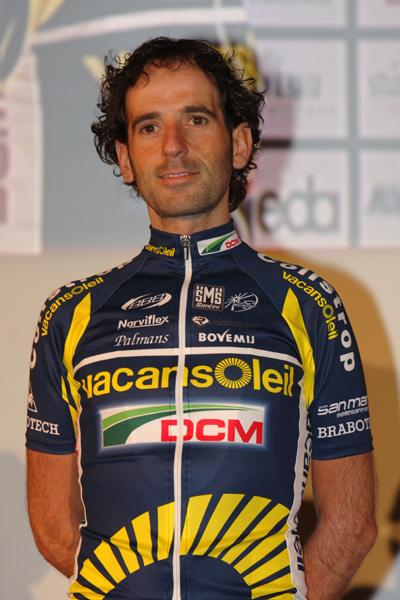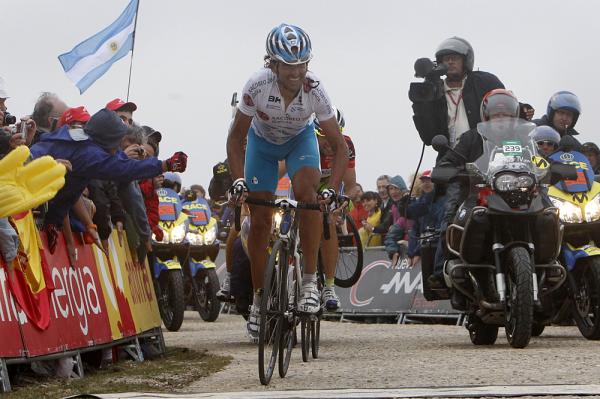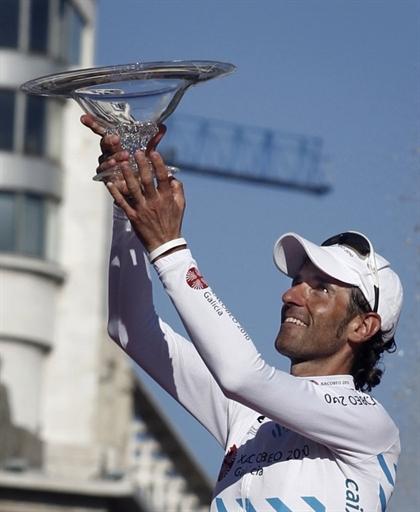Mosquera doping case still undecided
Spanish rider finds study to support defense argument



Having recently dismissed Riccardo Riccó for allegedly performing a blood transfusion which left him hospitalised, it has emerged that Vacansoleil-DCM management may have to wait a long time before they know the outcome of Ezequiel Mosquera's doping case.
Mosquera took second overall at the Vuelta a España but it emerged in late September that he had failed a doping test, with the offending agent hydroxyethyl starch (HES), a prohibited plasma expander. The case has taken another turn with the Spaniard citing the findings of a scientific study to prove that he didn't intentionally use the substance.
According to Spanish daily El Pais, the study by a Spanish professor demonstrates how HES is in a large number of compounds commonly eaten, so the presence of it in a rider's urine does not necessarily mean it has been used to mask EPO use or a blood transfusion. Easily detectable, HES has been known to anti-doping authorities for over a decade.
By increasing plasma volume, HES can hide increases in hematocrit, which is the most obvious sign of blood doping.
Mosquera has not been sanctioned nor subjected to a disciplinary hearings - in fact, the Spanish Cycling Federation hasn't yet received the report from a Cologne laboratory which found the positive. In the meantime, Vacansoleil-DCM has kept Mosquera out of competition to appease the UCI, which has threatened to revoke its ProTeam licence.
Mosquera's former Xacobeo Galicia teammate David García Dapena was suspended for two years after testing positive to HES and EPO during the 2009 Vuelta. Oscar Sevilla was also found to have used the substance during the Tour of Colombia last year and is yet to be sanctioned.
Get The Leadout Newsletter
The latest race content, interviews, features, reviews and expert buying guides, direct to your inbox!